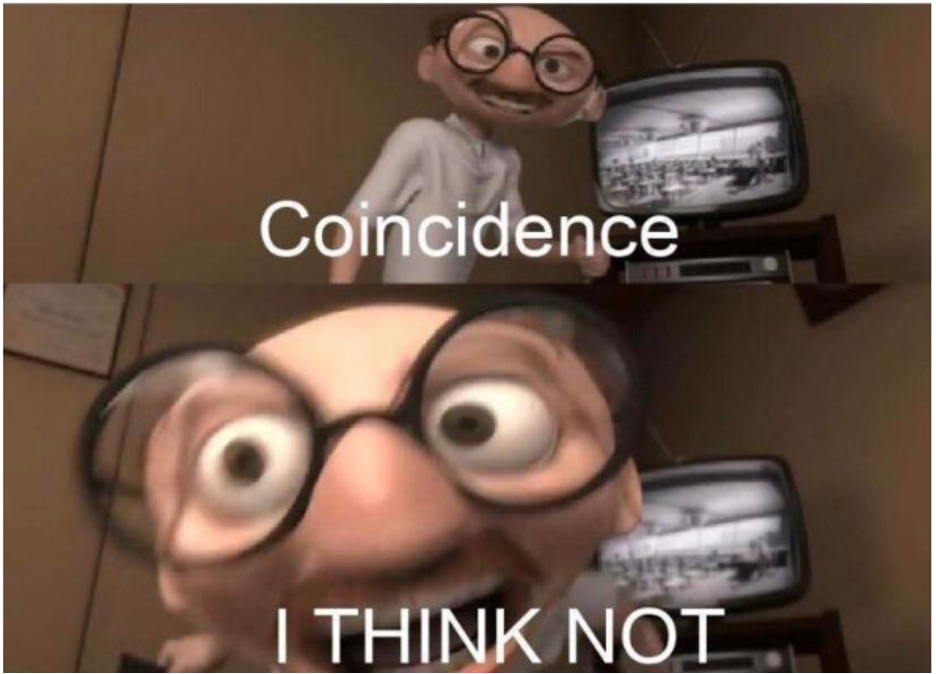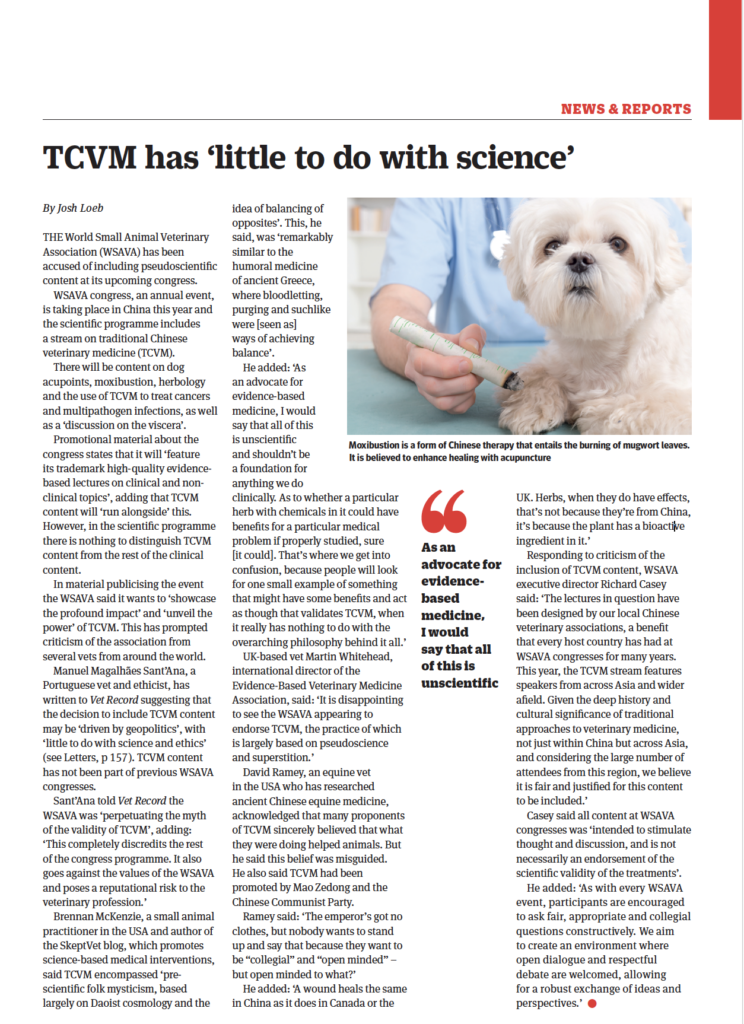The World Small Animal Veterinary Association (WSAVA) regularly sponsors a continuing education conference, as many such veterinary membership organizations do. This year is the first time the conference is being held in China. This is also the first time the conference has included a set of sessions devoted to so-called Traditional Chinese Veterinary Medicine (TCVM).

I have written about TCVM extensively on this blog (first in 2011, and most recently in my review of the Chinese herbal product Yunnan Baiyao last week). There is also a huge amount of discussion of the main components of TCVM, herbal medicine and acupuncture, occupying several chapters in my book. The history, philosophy and science related to the mélange of ideas and practices associated with TCVM is a vast area with lots to explore, but the core facts are these:
- TCVM is not “ancient.” It is a syncretist blending of disparate traditions and practices, many of which were never historically applied to animals, that was created by Mao and the Chinese communist government for ideological and pragmatic reasons in the 1950s.
- The model of health and disease underlying TCVM is a mishmash of folk mysticism, Daoist philosophy, and other beliefs that has no basis in science or a scientific understanding of nature. It has no more legitimacy as a basis for the practice of medicine than the mystical folk beliefs of Ancient Greece, Indian Ayurvedic medicine, Native American Shamanism, or any other pre-scientific way of understanding health.
- The specific practices usually associated with TCVM include acupuncture, herbalism, cupping, and a variety of diet and manual therapies. None of these has been proven effective by rigorous scientific testing despite decades of efforts to do so. Given the implausible unscientific rationales for how these methods ae supposed to work and the consistent failure to show they do work in robust scientific studies, it is most likely that they don’t work.
(The fact that plants have chemicals in them which can, and sometimes do, have medical benefits is not a validation of TCVM herbalism. That is an example of the bait-and-switch technique of promoting pseudoscience)
Unfortunately, the WSAVA has chosen to support the pseudoscience of TCVM by including it as part of their conference. They have attempted to distance themselves from the practice slightly, claiming it is being offered by local vets “alongside” the official conference, but this is a distinction without a difference. There is no reasonable way to view this as anything other than an endorsement of an unscientific, and likely ineffective, alternative practice.
I was included in a recent news article in the journal Veterinary Record discussing this controversial decision, along with several other regular proponents of science-based veterinary medicine. The Executive Director of the WSAVA has responded to criticism of the TCVM conference track by essentially acknowledging that this was a political decision intended to accommodate the beliefs of the host country-
The lectures in question have been designed by our local Chinese veterinary associations, a benefit that every host country has had at WSAVA congresses for many years. This year, the TCVM stream features speakers from across Asia and wider afield. Given the deep history and cultural significance of traditional approaches to veterinary medicine, not just within China but across Asia, and considering the large number of attendees from this region, we believe it is fair and justified for this content to be included.
His subsequent statement that this is “not necessarily an endorsement of the scientific validity” of TCVM rings pretty hollow. Membership organizations like the WSAVA are often quite political, and they are not fond of taking principled stands on the scientific merits of questionable practices favored by some of their members. I have seen this in exhaustive detail firsthand when participating in an unsuccessful effort to get the American Veterinary Medical Association (AVMA) to acknowledge that homeopathy is worthless pseudoscience.
Unfortunately, despite attempts to have their cake (make TCVM vets in China happy) and eat it too (claim to support evidence-based medicine), the WSAVA decision to include TCVM in their conference actively promotes a pseudoscientific practice that should not be used to treat animals without appropriate scientific validation of specific claims and methods. This is yet another case of politics trumping science and of a professional veterinary organization failing in their responsibility to support the best medicine for our patients and appropriate scientific standards of practice for their members.











Very disappointing on the part of WSAVA.
Unfortunately, including Chinese medicine, WSAVA lost some credibility, what will be next? homoeopathy, crystal therapy and aromatherapy lectures?…. Sad
Sad. Sad. Sad. As if it is isn’t hard enough to deal with the “internet educated” client…
had a friend trying to set up vet ce meetings in cuba until trump changed obamas course on cuba. some major sucking up to to cuba and china are needed to get our ce in comunist nations. If enough money can be made arranging tax deductable required by law ce courses some specialist will stand up and promote homeopathic medicine. last time i checked china and cuba were the only nations that have approved lepto vaccines for humans even though cuba studys say the homeopathic lepto vaccine for humans work just a well. someone at these ce meeting need to ask what is the nnt nnh and watch the quacks tell us why they cannot answer those questions.